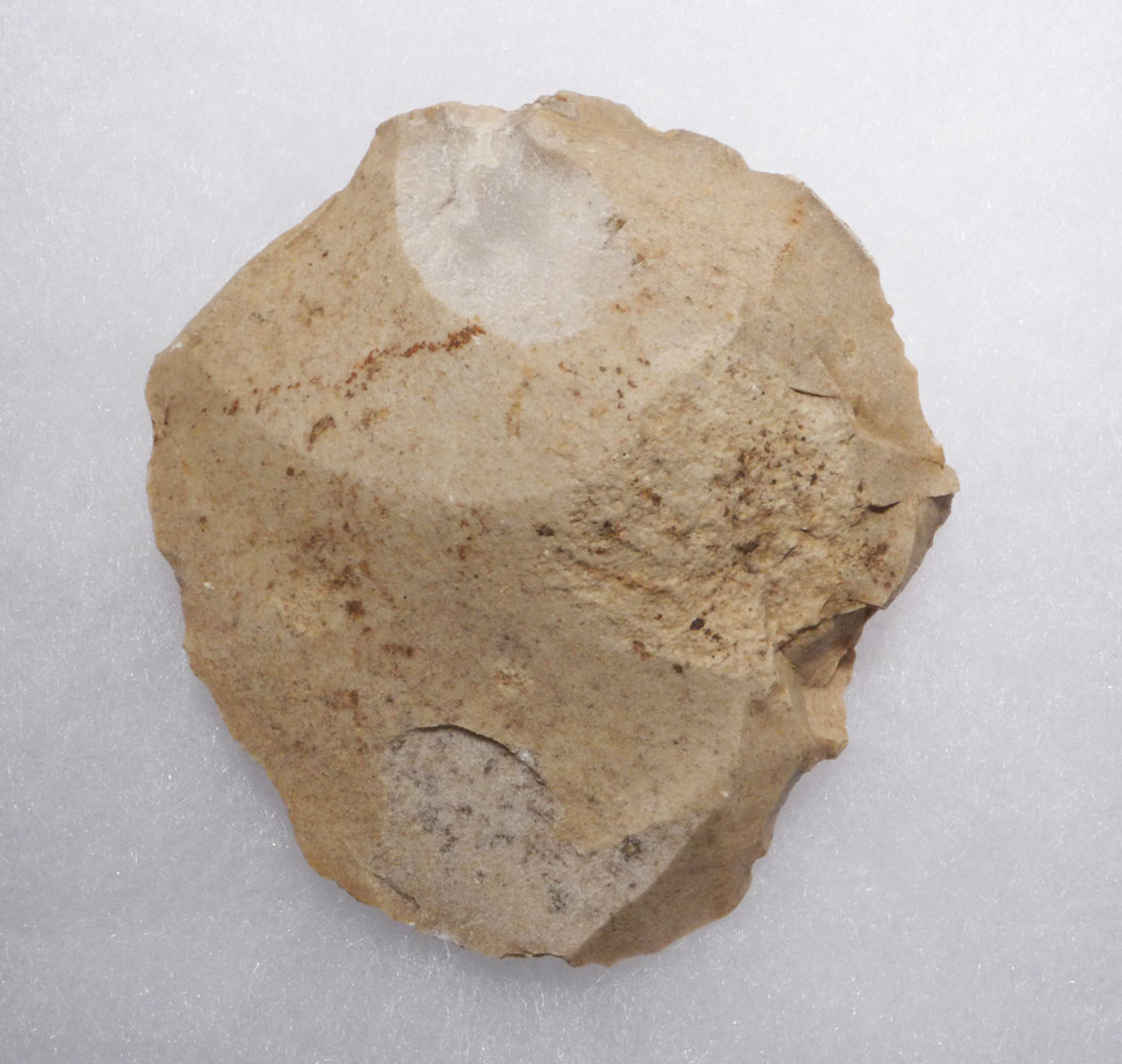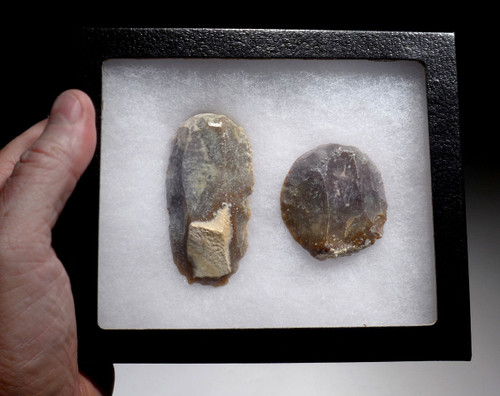Product Description
SEE MORE EUROPEAN NEOLITHIC TOOLS
This Neolithic flake tool was collected from the famous Le Grand Pressigny region in France. Made on a thick chert flake from this famous region of France, this robust UNIFACIAL DISCOIDAL SCRAPER flake tool is of superb, prehistoric manufacture. It is complete as originally made with evidence of extensive use and ancient re-sharpening on its cutting edge. A heavy scraper like this would have been ideally suited to scraping animal hides for clothing or leather goods manufacture, or for shaving wood, ivory or bone to make tools, weapons or objects of art. Made on a large unifacial flake and knapped in a radial manner to create a circular form, this impressive chert tool is in perfect, AS MADE condition. An excellent reference specimen of this tool type.
HISTORY
One of the most famous flint sources of the European Neolithic Period was the golden honey toned flint from the well-known site of Le Grand Pressigny. Dating all the way back to the Acheulian Period in Europe, flint was collected from deposits in Le Grand-Pressigny in Southern Touraine, France. In the Neolithic Period, large mines were dug and worked here with the flint being traded far distances away. The flint is unmistakable in its appearance - a rich golden yellow tone with slight translucence. Most famous from the area during the Neolithic were the massive blade cores prepared called Livres de Beurre (pounds of butter) by archaeologists for the appearance. From these cores, gloriously large flint knives were struck that in some cases, exceeded lengths of 12 inches! The entire prehistoric site of Le Grand Pressigny is scientifically important and was one of the most active epicenters of trade and habitation for an extraordinary length of time in human prehistory.
 US DOLLAR
US DOLLAR
 EURO
EURO
 AUSTRALIAN DOLLAR
AUSTRALIAN DOLLAR
 CANADIAN DOLLAR
CANADIAN DOLLAR
 POUND STERLING
POUND STERLING


















